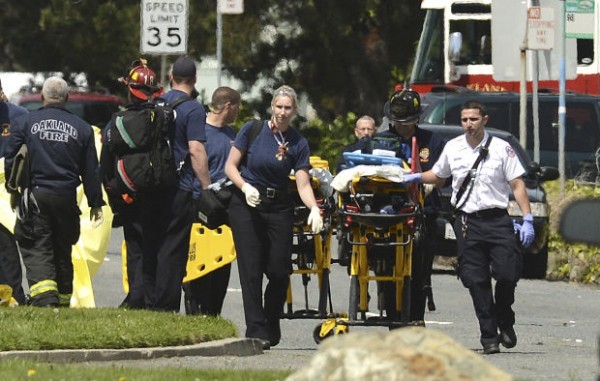 There have been a number of school shootings in the news lately, with the most recent including an elementary school in the Pacific Northwest and a middle school in in Texas in 2012. I can think of few things more heartbreaking, particularly because of my work with youth, I feel deeply invested in the mental and spiritual health of young people.
There have been a number of school shootings in the news lately, with the most recent including an elementary school in the Pacific Northwest and a middle school in in Texas in 2012. I can think of few things more heartbreaking, particularly because of my work with youth, I feel deeply invested in the mental and spiritual health of young people.
When it hits close to “home,” for instance, with Korean American Seung-Hui Cho and the massacre at Virginia Tech, I can’t help but feel it cut much deeper. That could have been a brother or a cousin, or someone I knew from church. The most pressing issue to me is the lack of mental health support and resources, and the continued stigma of mental health problems among Asian Americans, and I’d say particularly for Korean Americans.
And now another shooting within the Korean American community by a Korean American has happened this week:
The shooting, the Bay Area’s worst mass murder in nearly two decades, occurred Monday morning at Oikos University, in a business park between Interstate 880 and Oakland International Airport. Another three were injured in the slaughter, according to police.
The shooter has been identified as 43-year-old naturalized Korean American One (Won) Goh, a former nursing student at the school. A report in the SF Chronicle notes that Goh may have been involved in a dispute with campus officials. He was apprehended an hour-and-a-half later in Alameda, after having fled in a victim’s car.
One article relayed that after he ran away he eventually surrendered, and was arrested by Oakland police. There is nothing definitive about why he shot these innocent students, but CNN gives the following report:
The portrait of Goh emerging one day after six women and one man were shot to death at Oikos University in Oakland is of someone who felt he was “teased” and “picked on” at the college, which eventually expelled him, possibly for poor behavior, police said. Goh was self-conscious of his inability to speak English like a native and felt that students and others at the school made fun of him, police said. Oakland Police Chief Howard Jordan said it wasn’t immediately clear why Goh had been expelled from the college but, “We’ve been told that some of the possibilities are that he was expelled for his behavioral problems, anger management, but nothing specific.
Sounds familiar. The difficulties of being an immigrant unfamiliar with culture and language can lead to profound isolation, depression, and anger. I’m sad that he didn’t have the community support necessary to navigate these hardships in the beginning. Ironically, he was a student at a Christian College, and still was not able to find (or access?) the resources or network specifically for these issues. New Media describes the college campus:
“The community is largely a legacy of American evangelizing in South Korea, which is now home to the world’s largest Christian church. Most of 1.3 million Korean Americans are Christian, Park said, and they generally subscribe to an evangelical Protestant version of the faith. “There is a saying that when Koreans get together in the United States, they establish churches first,” says Park, who is Korean-American. “Some other Asians are more concerned with businesses or finances, but Koreans care about religion and about Christianity.”
But, once again, that stigma against mental un-health or any kind of disability, not only within the Asian American community, but also in the Christian subculture is pervasive.
Still, we need to keep on lifting up these issues and stories, not only of the shooters, but of the victims:
Lydia Sim, 21, was described as a happy person who always had a smile on her face. She babysat children at Hayward Baptist Church while attending nursing classes at the university. Daniel Sim said his sister was drawn to the school because of its predominant Korean-American student body, as well as its faith-based teachings. “She felt a lot more comfortable,” he said. “She was really outgoing and really independent.” He said his sister loved children, and children loved being around her. She was studying for her nursing degree, but her ultimate goal was to attend medical school and become a pediatrician. She had attended Ohlone College in Fremont before transferring to Oikos and was nearing graduation. Sim lived at home in Hayward with her parents and brother.
Maybe these stories will be continuous reminders to us of how important it is to not only make available but intentionally reach out to those who show any “red flags,” not only for the sake of these killers, but definitely for potential victims. Too many lives are being needlessly wasted and lost, and we can’t just sit idly by, Christian or not-Christian.
[Image from here.]








